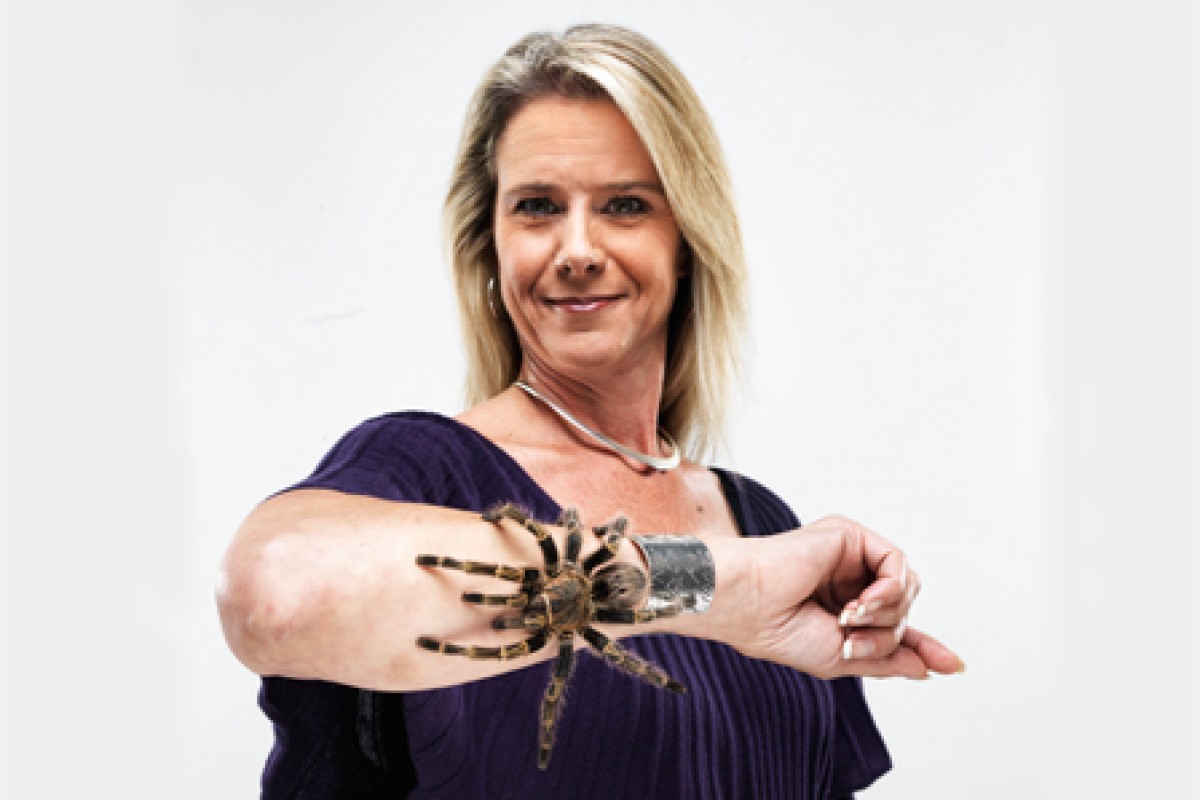 Dr Robin Zasio is a psychologist who helps people overcome their sometimes irrational fears.
Dr Robin Zasio is a psychologist who helps people overcome their sometimes irrational fears.I'm referring to phobias: a category of fear that's irrational, disproportionate to the threat posed, restricts your life and affects those close to you.
If you're shaking your head (and not in your boots) then you'll be surprised to know that anxiety disorders, the broader category that phobias belong to, is the most common mental illness in the US.
"Most people have fears of some kind," explains Dr Robin Zasio, clinical psychologist and host of television series My Extreme Animal Phobia, on the phone with Young Post. "For instance, if someone offered me tickets to skydive right now, I'd say that's not going to happen, and I don't foresee that ever to happen, because I have a huge fear of jumping out of planes. But it's not a part of my life and it doesn't control me in any way.
"When you have a phobia, you're talking about a level of anxiety that's so powerful it begins to interfere with your life, and actually begins to control where you go and what you do. And it begins to affect the people that you love, too, because they become limited as well."
Each hour-long episode follows Zasio as she diagnoses three patients and helps them confront their most agonising phobias. Her treatment involves exposure therapy, where patients are forced, in a controlled environment, to gradually face the animal they fear.
Dogs, snakes and spiders seem to be common phobias. However, Zasio treats some that are far more unusual: in episodes three and five she treats a girl with mottephobia, or the fear of butterflies and moths.
By the end of each show, after spending roughly five days with Zasio, patients are set free from their phobias. But not in all cases. Relapse is not unheard of with phobia patients. Whenever possible, Zasio recommends having the once-feared animal as a pet. Others live the rest of their lives without fear, yet a high sense of awareness of the animal remains.
"The most serious case we encountered was a woman who was afraid of cats," explains Zasio, who admits that exposure therapy, or any therapy, is never foolproof. "At the end of the show she was not able to actually hold the cat. She could barely even touch a cat. Just walking through a cat rescue [centre] was terrifying for her."
Phobia and fear are commonly used synonymously. It's not hard to see why. In Greek, the term phobia literally means "fear". The two terms differ not in the emotional or psychological reaction but rather the social impact. Most animal phobias are treatable, a fact that comes as a big sigh of relief for the millions of sufferers.
But, as Zasio mentions, it's the stigma surrounding phobias that prevents many from seeking treatment.
"A lot of people are living in silence because they're embarrassed or ashamed of being afraid of a cat or a dog or a fish," she adds. "
You know, it just sounds so silly because how often do you come into contact with fish? But you'd be surprised that someone would be afraid of something they'd would never even come in contact with."
But then, who are we to judge?
My Extreme Animal Phobia premieres February 7 at 11pm on Animal Planet
